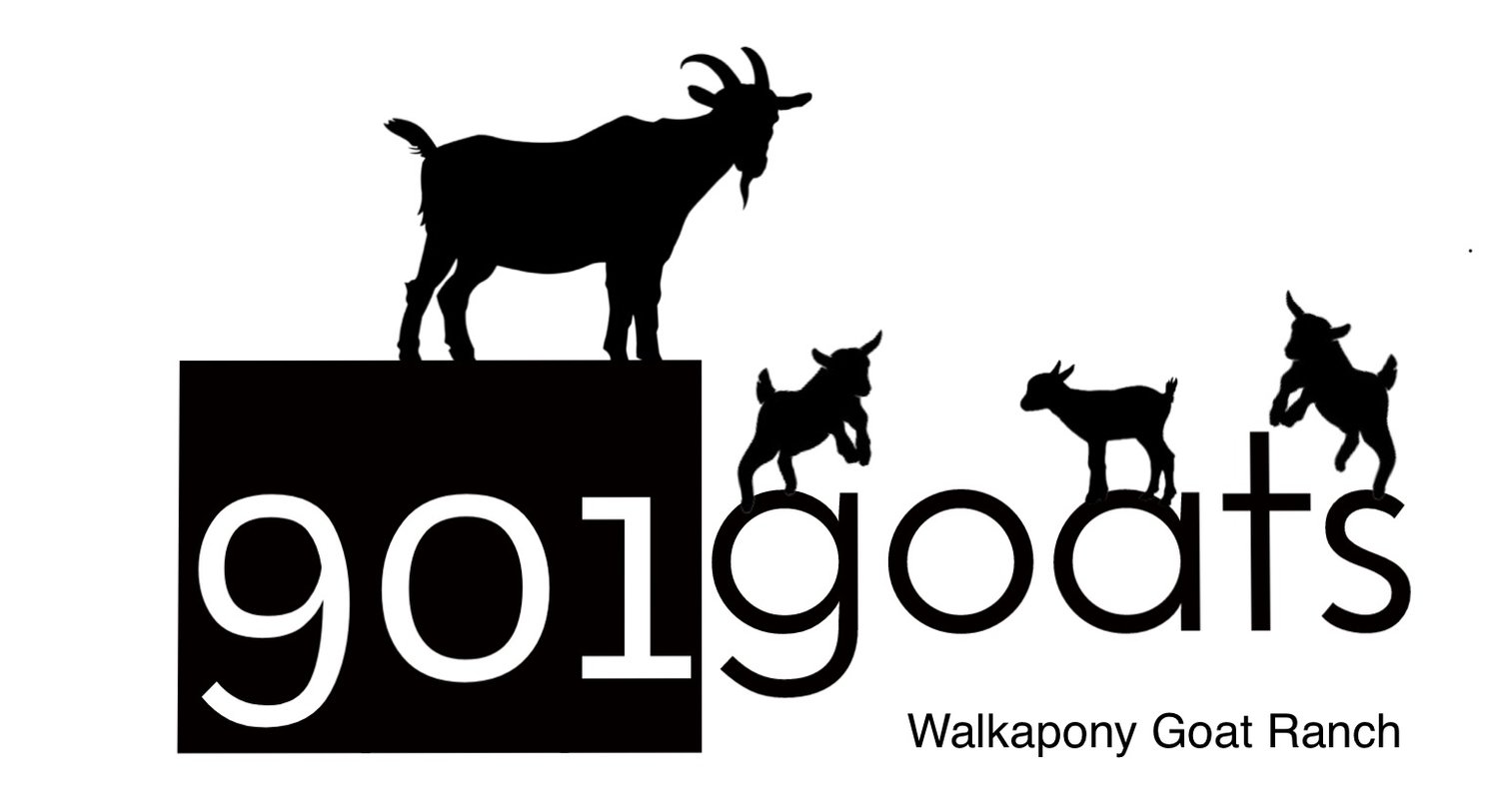Basic Goat Care & Needs
Goats are fun pets but require a bit of a learning curve to own. Goats are smart and will challenge your fencing boundaries.
Goats are herd animals and do best with a buddy (two or more). We require all buyers to purchase a minimum of two goats. A lonely goat will get into mischief and trouble and Dogs are not a suitable substitute buddy for your new goat. Most dogs will want to sniff/chase/play with your new goat. Goats will RUN from anything that approaches too quickly and goats can easily be killed by a “playful” dog.
Fencing: goats require fencing that is at least 4 foot tall with posts on the outside and wire on the inside (to prevent them from using posts as jumping leverage). The wire should be close together approx. 2” x 4” or less. A good rule to follow is if their head can fit- their body will follow. The gate should be very close to the post it swings/hinged on and close tight against a post with a latch. The gate should not wiggle- this may allow a goat to push through and escape.
Shelter: goats need a way to get out of rain and wind. A three sided structure works best with the open end facing away from the North and West (as most of our wind comes from this direction). Goats do not like tight/small enclosures like dog igloos. They prefer at least a 4’x4’ space with a wide entrance/exit. Ideally the ground in their shelter should be dirt in the summer and straw or wood chip covered in the winter. Do not use cedar shavings for goats as they are toxic to them.
Feed: goats will eat ANY plant. So fence off anything you don’t want them to eat. Goats will free brows/eat in the summer, preferring to eat the taller stuff first. In the winter you will need to feed hay (mixed grass, timothy or orchard grass) You may need to supplement with hay in the summer if not a lot of green for them to eat. Hay can be purchased from TSC, a local farm supply store, or a local farmer. You can offer alfalfa hay occasionally to male goats but limit the intake as to prevent urinary stones from forming. Female goats can have alfalfa hay at anytime. You should offer a goat pelleted feed or a grain feed once or twice a day. This is filled with vitamins and minerals that they need and complete a well rounded diet. We recommend a 16% pelleted goat feed, although a molasses based sweet feed can be fed as well.
Supplements: Offer “free choice” baking soda in a bowl… meaning set a bowl of baking soda out and leave it out for the goat to lick/eat whenever it wants too. (Like you would with a water bowl) this helps them not to get an upset stomach and neutralizes their gut for digestion. Also offer free choice loose minerals in a bowl for them to eat whenever they want. Purchase a mineral with copper as goats need copper in their diet. Do not feed a sheep/goat feed unless you own sheep and are feeding them together. Sheep feed/minerals do not have copper that goats need.
Goats should have clean water at all times. They are picky and will not drink dirty water unless forced to.
Yearly care: goats will need to be vaccinated once a year with CD&T vaccine. Follow the instructions on the vaccination. Hoof trimming as needed based on overgrowth. (You can google how to trim goat hoofs)
Check stool frequently- if loose/diarrhea you will need to deworm ASAP. Learn how to check a FAMACHA score. This is very important in goats. Deworm as needed based on anemia levels.
Research and find a good local vet that will treat goats. Keep their number handy as you may need it at some point.
Ole Hatchie Vet , Boliver TN (731) 658-3555
